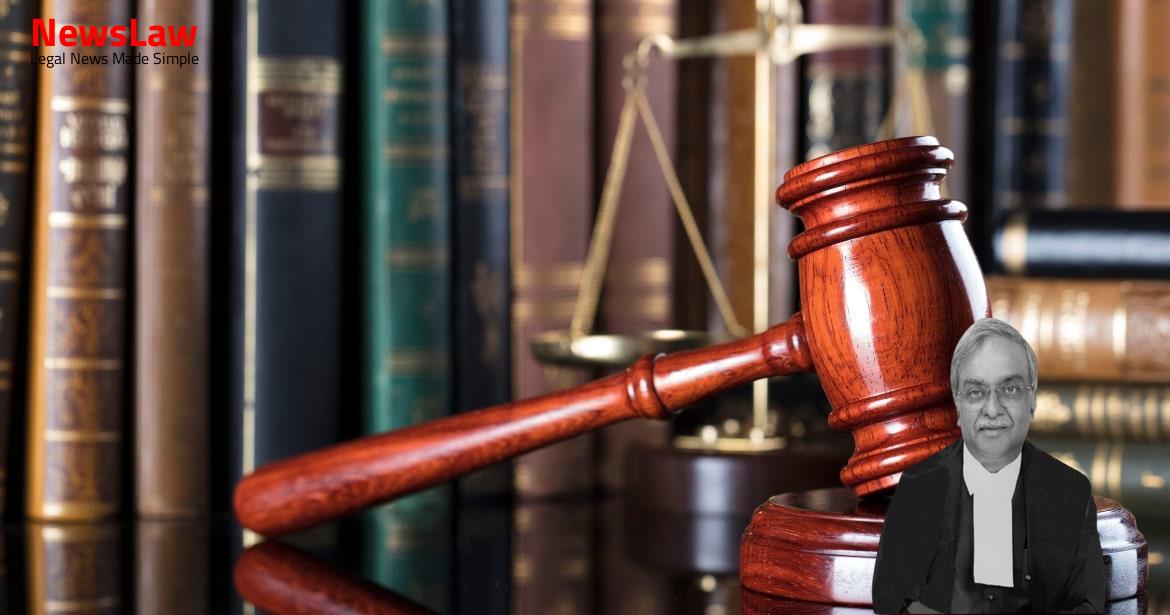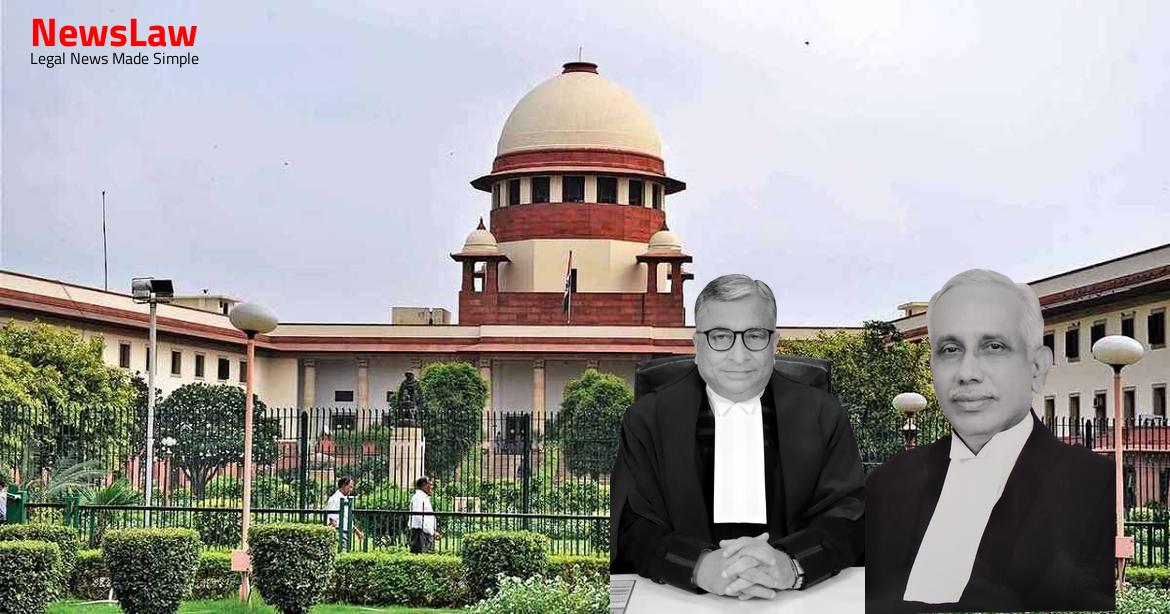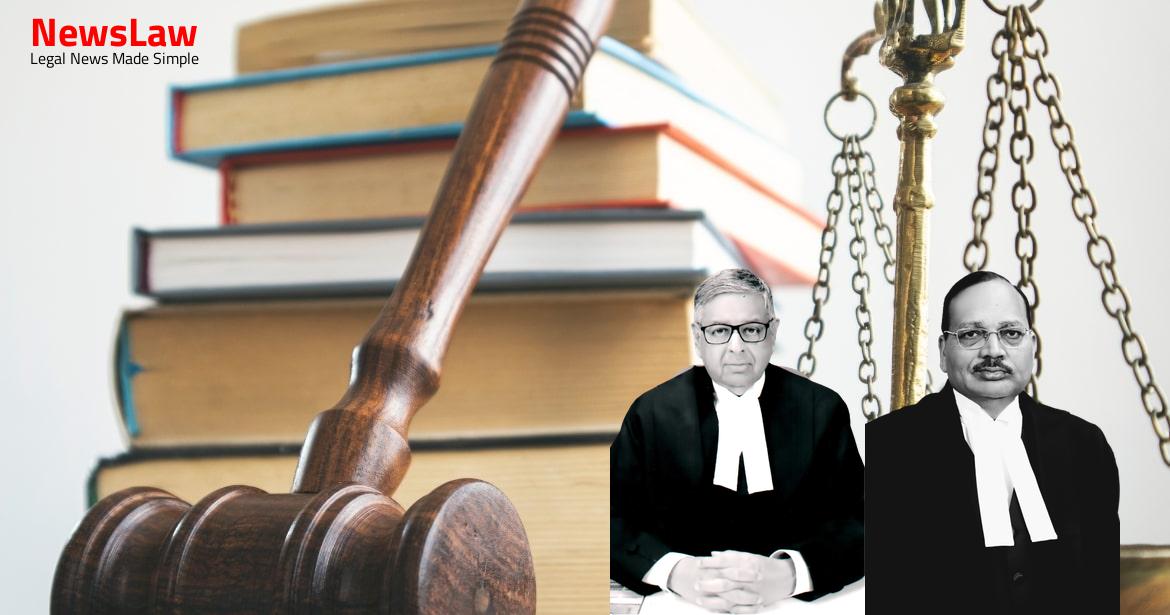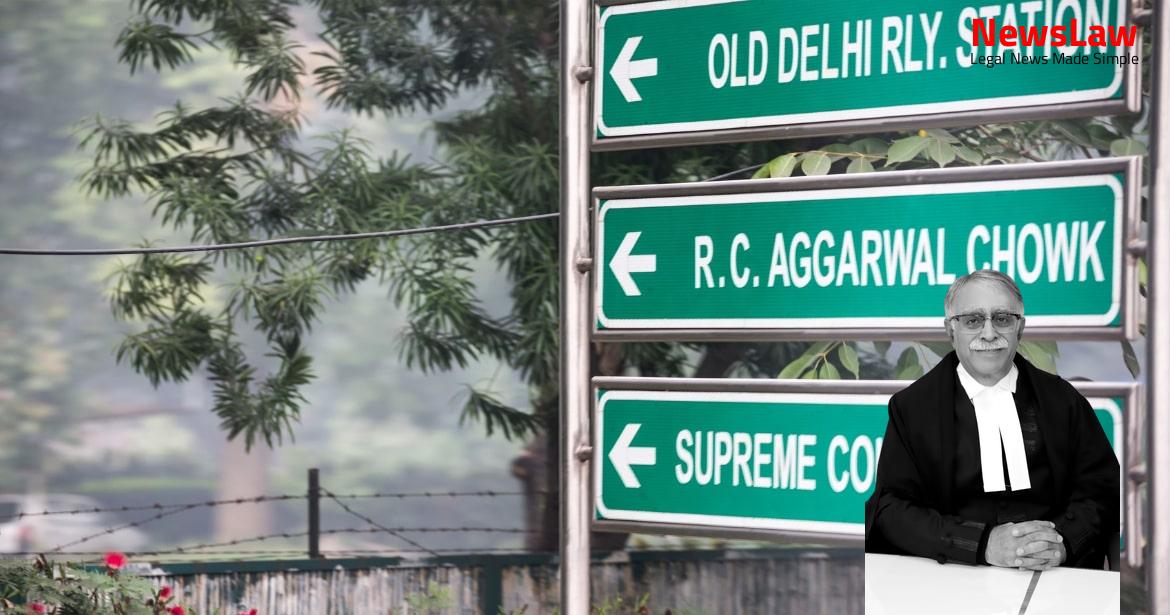The Civil Appeals challenge the judgments dated 08 August 2011 and 03 February 2012 passed by the Madras High Court whereby the Original Suits filed by the plaintiff- respondents for recovery of money on the basis of promissory notes were decreed. 5.2
Also Read: https://newslaw.in/case-type/civil/remand-of-writ-petition-for-restoration-and-decision-on-merits/
It is further the case of the Appellant that in 1995, his wife subscribed to yet another 5-year chit-fund with the Respondent-Maruthachalam. 5
The Cheque No 237954 was dated 20 October 1999 in favour of Respondent-Nachimuthu (who happens to be the brother-in-law of Maruthachalam) for an amount of Rs. The said cheque too returned unpaid on 14 November 1999 with an endorsement stating “account closed”.
9 Original Suit No 112/2003 (earlier OS No 602/2002) was instituted by the Respondent-Nachimuthu, alleging that the Appellant had borrowed a sum of Rs. 11 Original Suit No 112 of 2003 and Original Suit
No 266 of 2004 came to be dismissed vide judgment dated 06 January 2004 and 29 July 2005 respectively. 12 The Appeals against the judgments in criminal matters were allowed by the High Court vide common judgment and order of conviction and sentence dated 28.10.2008 and 30 October 2008.
Also Read: https://newslaw.in/case-type/criminal/presumption-of-genuine-endorsements-in-cheque-case/
She further submitted that even before the account was closed down, the wife of the Appellant became the sole proprietor of the enterprise, and thus, the appellant could not have signed the said cheques in the capacity of the proprietor of M/s Brinda Engineering. Prabhakar, learned counsel for the Respondents, submits that the Appellant-Raja Ram had failed to produce any material evidence to substantiate the claim that his wife subscribed to the chit-funds run by Respondent, Maruthachalam. This Court in the case of Baslingappa v.ibas Mudappa (supra) has summarized the principles on Sections 118(a) and 139 of the N.I.
We having noticed the ratio laid down by this Court in the above cases on Sections 118( a ) and 139, we now summarise the principles enumerated by this Court in following manner: 25.1.
It is not necessary for the accused to come in the witness box to support his defence.”
Also Read: https://newslaw.in/case-type/civil/medical-negligence-and-compensation-a-landmark-decision/
It can thus be seen that this Court has held that o nce the execution of cheque is admitted, Section 139 of the N.I.
It has further been held that to rebut the presumption, it is open for the accused to rely on evidence led by him or the accused can also rely on the materials submitted by the complainant in order to raise a probable defence. This Court found that unless the High Court came to a finding that the finding of the learned Trial Court regarding financial capacity of the complainant was perverse, it was not permissible for the High Court to interfere with the same. The appellant had also examined D.W.2-Thiru Iyyappan, Assistant Manager, City Union Bank, Ramnagar Branch with regard to bank transactions made by the sole proprietorship firm, M/s Brinda Engineering. Applying this principle, the learned Trial Court had found that the accused had rebutted the presumption on the basis of the evidence of the defence witnesses and attending circumstances. Mukesh Kumar (supra) is concerned, in the said case, though the accused was convicted by the learned Trial Court, which conviction was maintained by the Appellate Court, the High Court in its revisional jurisdiction interfered with the same and acquitted the accused. In an appeal at the behest of the original accused, this Court while affirming the order of the High Court observed thus: “ 18. In the absence of any other relevant material, it appears to us that the High Court did not err in discarding the appellants’ defence and upholding the onus imposed upon them in terms of Section 118 and Section 139 of NIA.” It can thus be seen that in the facts of the said case, this Court found that the defence raised by the appellants/accused did not inspire confidence or meet the standard of “preponderance of probability”. A distinguishing fact between the criminal proceedings and the civil proceedings in the present case is that, while in the criminal proceedings the complainant had failed to produce the promissory notes, in the civil proceedings, the complainant had proved the promissory notes. Though it was sought to be argued before the High Court that in view of the judgment in the criminal proceedings, the suit(s) was also liable to be dismissed, the High Court rightly observed that the adjudication in civil matters is based on preponderance of probabilities whereas adjudication in criminal cases is based on the principle that the accused is presumed to be innocent and the guilt of the accused should be proved to the hilt and the proof should be beyond all reasonable doubt. We are, therefore, of the view that, in the facts and circumstances of the present case, the decree needs to be modified restricting it to the amount already deposited by the appellants in both the proceedings with interest accrued thereon.
However, the decrees of the High Court are modified, thereby restricting them to the amount already deposited by the appellants in this Court in the civil and criminal proceedings, along with interest accrued thereon.
Case Title: RAJARAM S/O SRIRAMULU NAIDU(SINCE DECEASED) THROUGH LRS. Vs. MARUTHACHALAM (SINCE DECEASED)THROUGH LRS (2023 INSC 51)
Case Number: Crl.A. No.-001978-001978 / 2013



